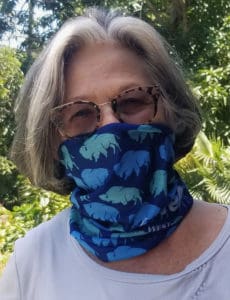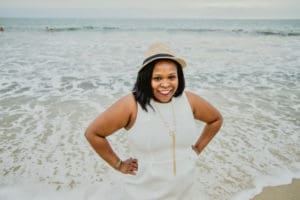
As I was working in my garden Sunday afternoon, I suddenly realized that Labor Day is upon us. I remembered that I had offered my thoughts on last year’s observance of the holiday with a certain amount of passion. I have included many of those observations within this year’s reflections.
Some things I wrote a year ago, like high rents, high cost of living and the scarcity of good-paying jobs that carry the hope of establishing wealth, and that observation unfortunately is still valid.
What has changed is that an unprecedented number of people have now lost their jobs and are anxiously awaiting a miracle while searching for their next meal.
I call it the “when things get back to normal” myth. If there were evidence that normal – whatever we think that is – will return, I wouldn’t fight it.
But I read. I read about the viruses, I read about the economy, I read a whole lot about the yawning and ever widening gap between wealth and poverty.
The most foolish thing anyone can do right now is attempt to predict the future. But the one thing that many very wise journalists and scholars are aligned on is this is our time to recalibrate.
As I wrote a year ago when we still had hotels and cruise ships, the average Virgin Islander was struggling to get by on what we call minimum wage.
The territory has raised its minimum wage to $10.50 per hour from the federal minimum of $7.25. But that does not apply to people working in restaurants or “tourist service” – whatever that means. Generally, people who are tipped can make as little as $4.20 an hour.
The average rent for a two-bedroom apartment in the Virgin Islands, according to rentdata.org, is $1,139, the ninth highest in the 54 U.S. states and territories. Of course, that figure has an automatic flaw because it includes St. John, where rents are well … exorbitant.
But let’s do the math anyway. Someone working for $10.50 an hour in the V.I. will bring home after taxes roughly $350 a week, times four – $1,400 a month, leaving less than $300 to live on.
Even if they paid no taxes, take-home would be $420 for 40 hours of labor.
I need to insert just one fact here to make this real, though statistics make people’s eyes glaze over in general: Almost 30 percent of our children live in poverty in the United States Virgin Islands. Given the above math, that is not hard to believe. And 58 percent live in a single parent home. So, in many cases there is only one income supporting a family.
As for the rent, I am not taking into account that rent is lower than average in housing communities for low-income people or some of the newly built middle-income properties. But still, people who labor for their money should have dignity and the same basic opportunities and safety nets as those who make money from money. Let’s have that as not just an ideal, but as a goal, whatever it takes.
With the territory closed for all realistic purposes to tourists and cruise ships, it is imperative to focus with laser precision on what we can do without them. And not just because all predictions are that it will be a very long time before we see the numbers of visitors we had before COVID-19.
In fact, we may never see them. But even if we did, that does not change life for the working poor in the Virgin Islands.

I recently interviewed Annalise Setorie, a young woman raised on St. Thomas who returned home recently after traveling and working extensively in other places for 15 years. Here’s what she said:
“How does a family, or even an individual, live on $40,000 a year here?” she wonders. Between the cost of food and power, she worries about her community members.
The systemic racism in the territory looks economic, but its roots are the same. The white folks who might have been outliers to her when she was in high school, she thinks of as ex-pats today. Meanwhile, Virgin Islanders, who are by far the majority, “can’t afford to buy a house here.”
[Home ownership is a well-established means of building wealth.]
And then there’s the tourism that drives economic life in the islands. She feels there is little opportunity for advancement within the industry for locals, which means no upward mobility.
Meanwhile, as the ex-pats live well, many if not most, people in the community would be considered working poor if you based the metric on the cost of living.
“The people straddle two worlds.”
She is exactly right. As other places adjust, even finding small joys amid the suffering, because tourist destinations across the globe are seeing wildlife and creativity thrive in the absence of the trampling hoards who have done so much damage to places as diverse as Venice and Machu Picchu, we seem to be twiddling our thumbs while awaiting the return of something that has not well served the average Virgin Islander.
An article that caught my attention spoke of how Venice has flourished without cruise ships. Seems obvious, but what stood out was mention of how overnight guests can take advantage of small locally owned businesses that exude the culture of the place instead of bogus pizza joints that feed the masses.
My thoughts were not about Venice, but about the Virgin Islands as I searched my brain for what local businesses thrive and build wealth for their owners based on tourism. I am open to suggestions … and I mean that because I could not think of one. Who owns the shops on Main Street, the restaurants, the hotels? I don’t blame the outsiders who have come here and done well. They have in many cases provided needed offerings to support the old ways of doing business. Some even contribute to the tax rolls.
But they do not offer a way toward wealth for the average Virgin Islander.
Part of the problem is the Virgin Islands is and always has been an “open economy,” as opposed to places like the Bahamas, which is a “closed” economy, meaning not just anybody can come and open a business.
Frank Comito, chief executive officer of the Caribbean Hotel and Tourism Association, who resided in the Bahamas, said in a recent interview there are 20 classes of businesses there that can only be owned by locals.
“It is how they built a middle class,” he said.
Earle B. Ottley did the same thing back in the day for Virgin Islanders by establishing the V.I. government as a major and well-paying employer. But that was then. This is now.
The model of government as a major middle-class engine is no longer viable. It has not been for a very long time. In fact, trying to continue the model for way too long was a major contributor to the crushing debt we have built and the impending demise of our government’s retirement system.
Meanwhile, there are programs and “outliers” that have done and still do much to support the economy, but we ask too little of them in some cases. As Setorie pointed out, very often Virgin Islanders are not given the opportunities or training that will allow them to advance and create wealth for themselves and their families.
One of the ideas that I batted around with a friend was that for $200 million every household in the Virgin Islands could be fitted with solar energy. But, at the time I thought, “Where’s the capacity?”
And then I floated the idea with the man who owns the company that did my solar work.
Turns out there are opportunities for training through the Solar Energy Industries Association out of Florida, he told me. But he agreed about the current lack of trained electricians and installers.
One week later, I discovered to my delight that the St. Croix Foundation had already thought of this and done something about it. Wow.
The University of the Virgin Islands had an entrepreneurship program – it may still.
Of course, My Brother’s Workshop has filled a healthy portion of the need for training young men and women in the construction trades.
On this Labor Day, however, it is not enough to tout the energetic goals and accomplishments of a few organizations. As the rest of the world is waking up to the need for huge systemic changes to meet the challenges of the rearranged economy that has been wrought by conditions that we cannot control – we need to wake up too.
The world is reeling and even when and if the virus magically disappears, nothing will be the same no matter how much we wish for it. But there are things we can control right now that will make a brighter future possible. That would be our intentions and subsequent, swift and focused actions.
So, what’s the plan and who is working on it? And who will be the beneficiaries?
As we watch the cruel and crass dismissal of the most needy among us by a country that has turned its future and fortune over to the oligarchy at the expense of the majority of people, I can only believe that that path cannot continue much longer. There is way too much at stake. That which is at stake is our young people and those yet to be born. And because of the inhumanity now witnessed by the entire world, systemic change is demanded on their behalf.
What do we say to our young people on this Labor Day?
Here is what I would like to hear our leaders say to this community: “We commit 100 percent to imagining and creating a future that allows you to live with dignity and hope.” And then we make a dramatic and meaningful plan to do that and we do it now. The time we might have had for incremental change was wasted along the way.
We cannot afford to look back for another minute. This is the only minute that we have to build and prepare for the new future, which is Now.
Happy Labor Day.





